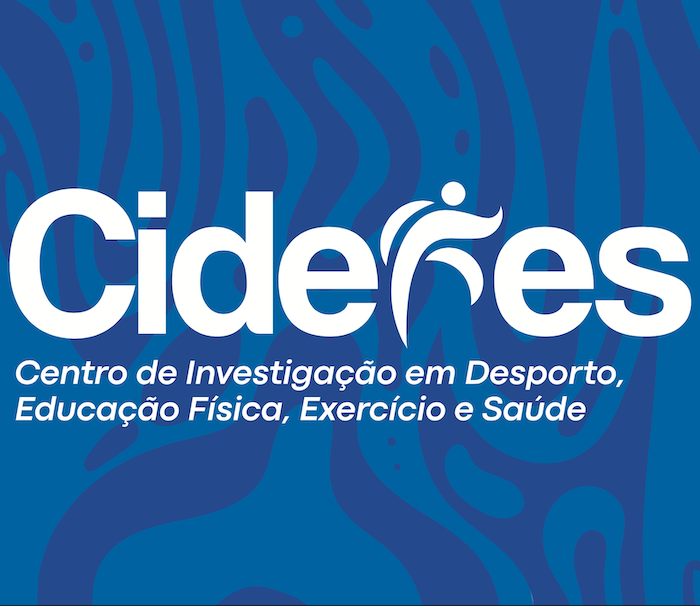Projects
MOVE24 - Divulgação, Monitorização e Vigilância das Orientações do Movimento Português de 24 Horas: fazer com que o dia inteiro seja importante
Funding type
FCT
PTDC/SAU-DES/0166/2021
Amount funded: 249371.80 Euros
Timeline
2022-2024
Principal Investigator
Rute Santos (CIAFEL)
Other Investigators
Projeto desenvolvido no âmbito da Universidade do Porto, CIAFEL.
- António Palmeira (CIDEFES)
- Eduarda Sousa-Sá (CIDEFES)
- Marlene Silva (CIDEFES)
- Bruno Rodrigues (CIAFEL)
- Carla Moreira (CIAFEL)
- Luís Lopes (CIAFEL)
- Cristina Godinho (CRC-W/UCP)
- César Agostinis-Sobrinho (Klaipeda University)
- Romeu Mendes (EPIUnit)
- Sandra Abreu (Universidade Lusófona Porto)
Partners
Universidade Lusófona (Portugal); Direção Geral Saúde (Portugal); Instituto de Saúde Pública da Universidade do Porto (ISPUP/UP); Universidade Católica Portuguesa (UCP).
Summary
Our research group is developing the Portuguese 24h Integrated Movement Guidelines (24hMG) for the different age groups, and the first 24hMG for adults are foreseen to be completed in 2022. The 24hMG will serve as a basis for future public health surveillance and provide practical information for clinicians, researchers and general population. As the 24hMG project progresses it is vital to make research results reachable and understandable to the end-users. The KT plan needs to be set up at the same time as the 24h-MG project is being carried out, to avoid losing opportunities to optimize guidelines uptake. Past experience with guidelines development has shown that purposeful efforts to its KT were often not pursued until after the guidelines were complete; such discontinued process resulted in lost opportunities to optimize guidelines uptake, wasted intellectual and financial resources and hampered changes in population levels of movement behaviors (MovBeh).
As the 24hMG for the different age groups are launched and its complete KT is carried out, new or adapted measurement instruments or additional survey items will be needed to ensure guideline adherence and MovBeh levels can be determined; preliminary evidence from the 24h-MG systematic reviews shows that there are currently no self-reported instruments to assess MovBeh in an integrated way. Therefore, there is a need to develop a set of valid instruments specifically designed to assess MovBeh levels, that can be used in epidemiological studies and clinical practice, in Portugal and internationally. Such need aligns with the WHO Physical Activity Strategy for the European Region 2016-25, and with the WHO Global action plan on Physical Activity for 2018-2030. These WHO documents also highlight the need to generate data on 24h MovBeh, trends and its association with other health outcomes, that encourages research, drives action and evaluates public health policies, in a systematic manner. A pragmatic approach to collect such data is through public registries and data pooling.
This proposal represents an afterthought and a complement to the ongoing 24hMG project and AIMS to: develop a complete KT plan; create self-reported and proxy-report instruments to determine 24hMG compliance; and pilot an International public health registry of 24h MovBeh and data pooling.
The legacy of this project includes a repository of a valid instruments set to specifically assess MovBeh that will enrich many subsequent research studies and foster public health monitoring and surveillance, nationally and internationally. Likewise, the development of an open dataset to pool data from studies across the world and to collect, in a continuous fashion, data from any person who volunteers to deposit their individual data, allowing its reuse and reanalysis, has the potential to boost new scientific research; delivery of professional development activities/webinar have the potential to change practice on how MovBeh and promoted, these can be easily refreshed, adapted and redelivered after the lifetime of this project. This is what our research group has expertise on: Registry development; pooling international datasets; public health policy and health promotion; construction and delivery of professional development courses for health and education professionals; and national and international multi-site epidemiological studies.

